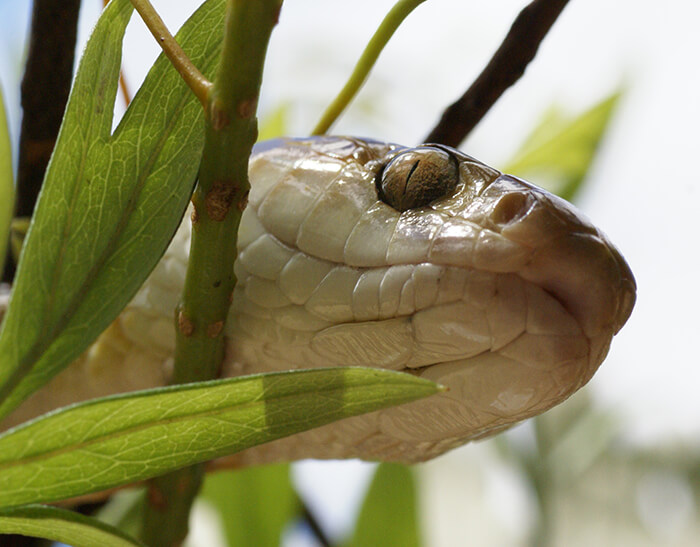Introduction
When it comes to poisonous snakes, Australia is home to a few of the most interesting and hazardous varieties worldwide. Among these, the Tiger Snake stands out not only for its powerful venom however additionally for its fascinating behavior. Understanding the behavior of Nocturnal snakes Australia poisonous snakes like the Tiger Snake is critical for both wild animals fanatics and those residing in locations where these serpents exist. This short article delves into various facets of Tiger Snake habits, environment, identification, safety measures, and first aid practices in instance of a serpent bite.
Understanding the Actions of Venomous Snakes Like the Tiger Snake
The Tiger Snake, clinically known as Notechis scutatus, is notorious for its hostile nature when intimidated. These snakes display a variety of behaviors that can be fairly different from their non-venomous equivalents.
Characteristics of Tiger Snakes
The Tiger Snake is conveniently identifiable because of its distinct bands or stripes that appear like a tiger's markings. They can differ in color from yellowish-brown to dark olive or black. This coloration serves not just as camouflage yet additionally as a warning signal to possible predators.


Adaptability to Environment
One amazing aspect of their behavior is their flexibility to numerous settings. Found mostly in coastal regions, marshes, and marshes across Australia and Tasmania, they can grow in varied environments including urban areas.
Hunting Techniques
Tiger Snakes are ambush predators mostly eating fish, frogs, and small mammals. They possess keen vision and a severe feeling of odor which aids them in situating victim effectively.
Venom Composition
Their poison consists of neurotoxins that influence the nervous system, causing paralysis or death in smaller pets. For people, immediate clinical attention is crucial after a tiger snake bite as a result of its potentially dangerous effects.
Natural Habitat of Tiger Snakes
Preferred Locations
Understanding where these snakes reside sheds light on their behavioral patterns. The tiger snake habitat includes:
- Coastal regions Swamps Grasslands Urban areas with abundant water sources
Seasonal Movements
During warmer months, Tiger Snakes are more energetic as they indulge in sunshine or quest for food. On the other hand, colder months see them retreating into hibernation sites.
Are Tiger Snakes Venomous?
Yes! The question "are skillstrainingcollege.com.au tiger serpents poisonous?" commonly develops among those not familiar with this varieties. Their poison is considered one of the most dangerous amongst all serpent varieties worldwide.
Symptoms of a Tiger Snake Bite
If bitten by a tiger serpent, signs might include:
- Localized pain Swelling at the bite site Nausea and vomiting Sweating and confusion
Immediate clinical help is critical as neglected attacks can lead to severe health and wellness problems and even death.
First Aid for Snake Bites: Quick Reaction Guide
Knowing how to provide emergency treatment for a serpent bite could conserve someone's life. Below's what you ought to do:
Step 1: Remain Calm
Keeping tranquility aids reduce heart rate which decreases poison spread.
Step 2: Debilitate the Influenced Area
Keep the impacted limb still and below heart degree if possible.
Step 3: Call Emergency Services
Always look for expert clinical assistance immediately after a snake bite.
First Help for Snake Bite Kit Essentials
A fully equipped snake bite first aid kit ought to consist of:
- A compression bandage Antiseptic wipes A set of scissors A cold pack
Safety Precautions: Avoiding Serpent Bites in Australia
Awareness Programs
Educating communities regarding regional snake varieties and their habits can considerably lower encounters bring about bites.
Avoiding Dangerous Areas
Staying far from lengthy grass during warmer months reduces call with serpents that may be relaxing or hunting.
Common Misunderstandings Regarding Tiger Snakes
Many individuals believe misconceptions concerning the actions of tiger serpents bring about unneeded anxiety. Right here are some explanations:
Myth 1: All Tigers Are Aggressive
Not all tiger serpents will certainly present aggression if left uninterrupted; many like taking off rather than confrontation.
Myth 2: They Chase Humans
Tiger snakes do not proactively chase humans; they may strike when they feel intimidated however will usually retreat if offered space.
Conservation Efforts Related to Venomous Snakes
Conservation initiatives focus on informing areas regarding shielding local https://skillstrainingcollege.com.au/most-venomous-snake-in-australia/ wildlife while decreasing human-snake interactions.
Importance of Ecosystems
Understanding that venomous snakes play an important function in preserving environmental equilibrium aids foster gratitude rather than fear towards them.
FAQs Regarding Tiger Snakes
What must I do if I encounter a tiger snake?- Maintain distance and slowly back away without unexpected movements.
- While attacks aren't extremely typical as a result of recognition efforts, they still take place each year within Australia.
- Baby tiger serpents can deliver full doses of venom despite being smaller; for this reason caution is advised around them.
- They primarily consume frogs, fish, little mammals like rodents, and other reptiles.
- It's prohibited in many territories without appropriate licensing due to safety and security issues regarding their venom.
- Wear sturdy boots and stay on marked tracks; look before putting hands or feet into concealed spaces like rocks or logs.
Conclusion
Understanding the actions of poisonous serpents like the Tiger Snake not just boosts our understanding yet also promotes safety awareness amongst those living near their environments. From recognizing their qualities, comprehending emergency treatment protocols adhering to a bite, through involving conservation initiatives-- every facet plays a crucial role in cultivating conjunction with these remarkable reptiles while respecting their area within our ecosystem.
As we grow our understanding through education and experience, we contribute positively toward guaranteeing both human security and wildlife preservation-- benefitting all events involved!
